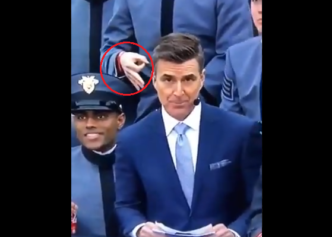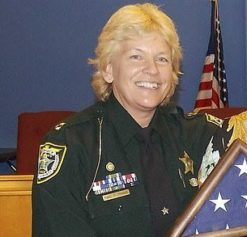https://youtu.be/X44NUijWeSI
While Arabs and African-Americans seemingly share a common struggle against the power structure that is white supremacy, it’s no secret that the two groups have a less-than-ideal relationship.
Former Michigan state Rep. Rashida Tlaib experienced the rift first hand after participating in a protest demanding police accountability in the deadly shooting of Kevin Matthews, an unarmed Black man, by a Dearborn police officer in 2015. Speaking to The Arab American News, Tlaib said she was met with snide remarks from big-name members from the Arab community, revealing anti-Black sentiments among some leaders.
“‘Why are you there? Why are you against Chief [Ronald] Haddad?'” the ex-representative said she was told. “‘This makes the Arabs look bad. You guys shouldn’t be there. This isn’t your issue.'”
Tlaib denounced anti-Black attitudes held by members within the Arab and Middle Eastern societies, saying, “No one, I don’t care what color, what faith, should be dehumanized like that. The anti-Blackness that’s happening across this world is real. It’s very painful.”
Relations between Blacks and Arabs in Tlaib’s native Detroit have been strained for years, prompting the local politician to call for sincere efforts from her fellow Arab-Americans to try and empathize with Black Americans and their fight against police brutality. Moreover, she urged Arab-Americans to remain self-aware of their own racial biases.
The newspaper noted that a prominent Arab-American activist from Dearborn was arrested at a demonstration in Ferguson, Mo., following the fatal shooting of Black teenager Michael Brown in 2014. Back in Detroit, however, Arab-Americans were on social media dubbing the protesters “thugs.”
“It’s a fractured relationship,” said Rana Elmir, deputy executive director of the American Civil Liberties Union. “Ultimately, it’s a relationship that’s based on transactions, as opposed to true understanding, solidarity, empathy.”
Elmir, an outspoken activist for allyship between communities, explained that building an understanding between the two groups could take some time and noted the responsibility of both Arab-Americans and Black Americans to make an effort to mend the fray. She pointed to the geographical segregation of concentrated areas of African-Americans and Arab-Americans in Southeast Michigan, which has made it harder for the two groups to break racial misconceptions they have about one another
“We often come together when there is a problem, when there is a need for communities to come together because there was a shooting or because of an eruption of anger or fear,” she told The American Arab News. “But outside those news events, are we having these difficult conversations?”
Amer Zahr, a comedian and adjunct law professor at the University of Detroit, highlighted the fact that some of the anti-Black attitudes in the Arab-American community stem from the designation of Arab-Americans as “Caucasian” in the U.S. census. He noted that Arab-Americans often interact with African-Americans in business settings (gas stations, liquor stores), creating a “transactional” relationship that has spurred bigotry on both sides.
“When you own a business in a low-income community that’s not very mobile, and people have to come to you, that creates a position of power structure that’s not very healthy for creating relationships that are good to social justice,” he told the newspaper, adding that Arab-Americans need to start identifying themselves as an oppositional group against the system.
“We do have a responsibility,” he said. “We shouldn’t just be crazy capitalists in an urban society.”


